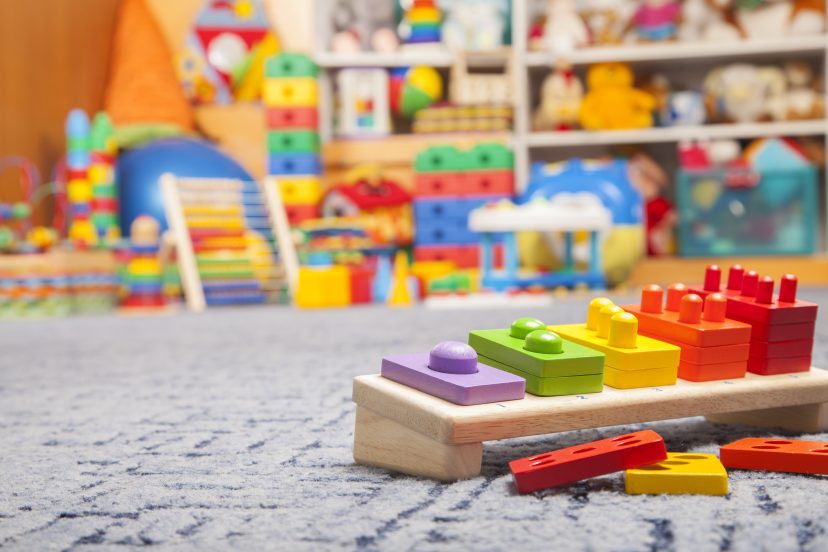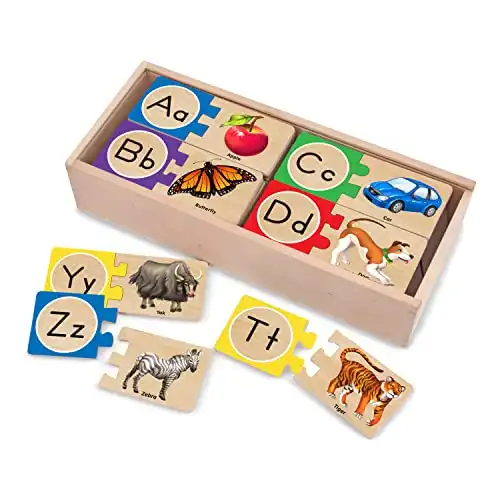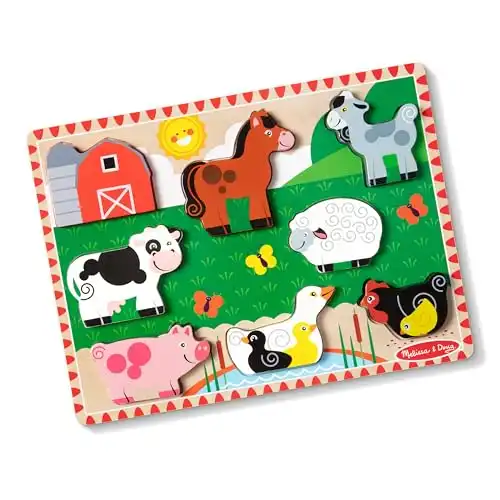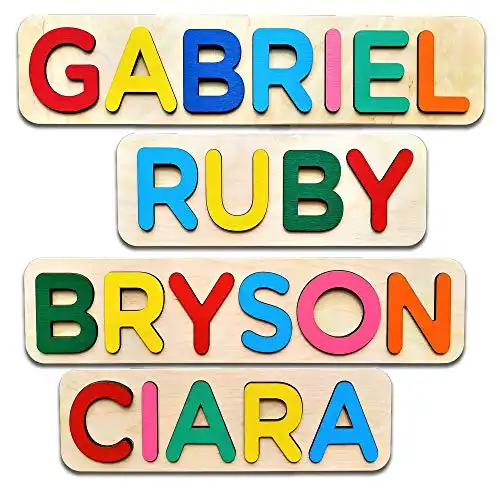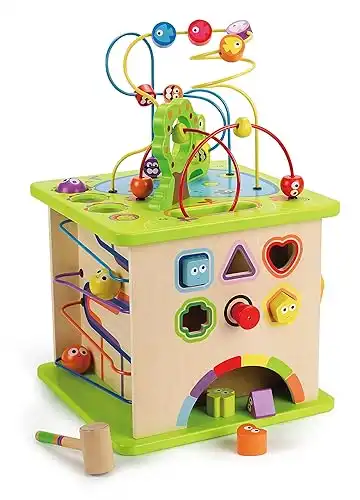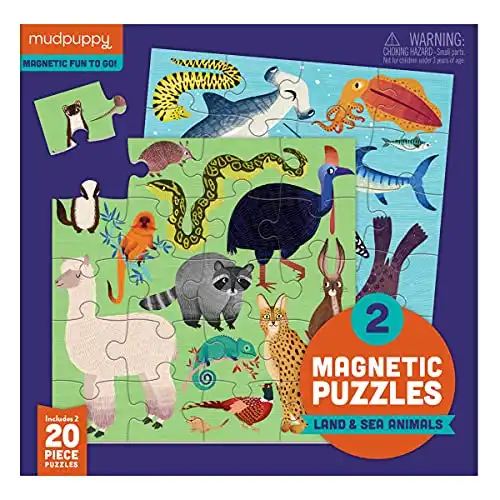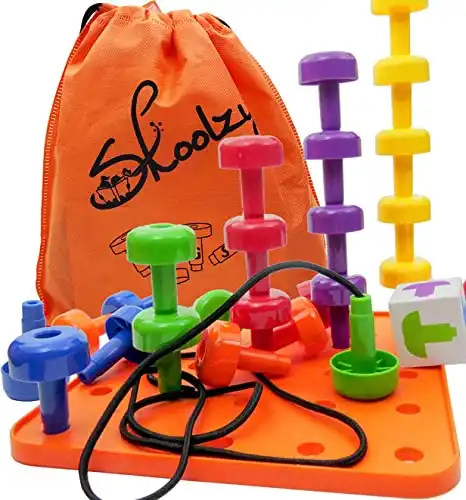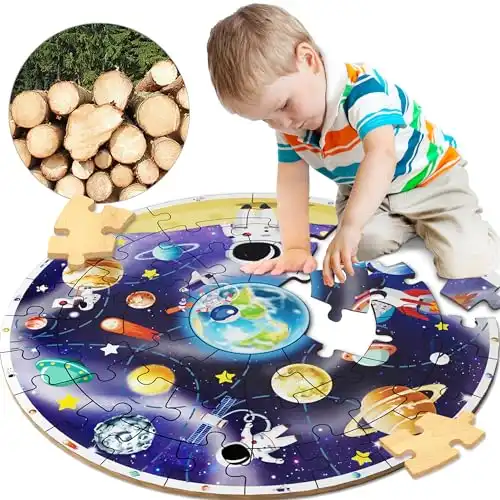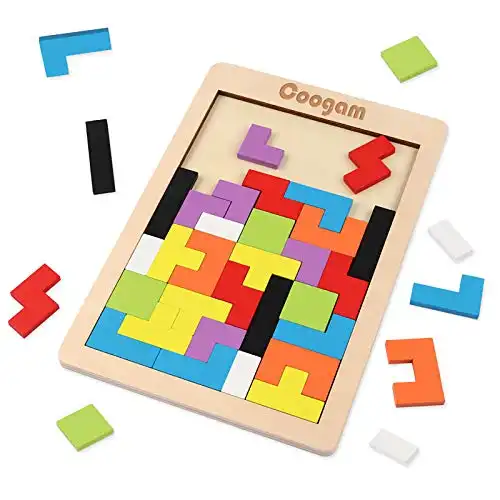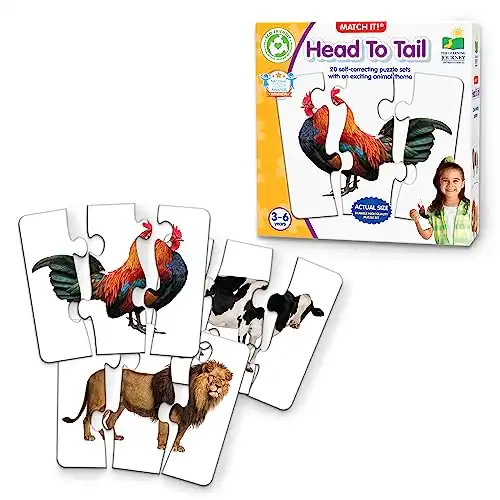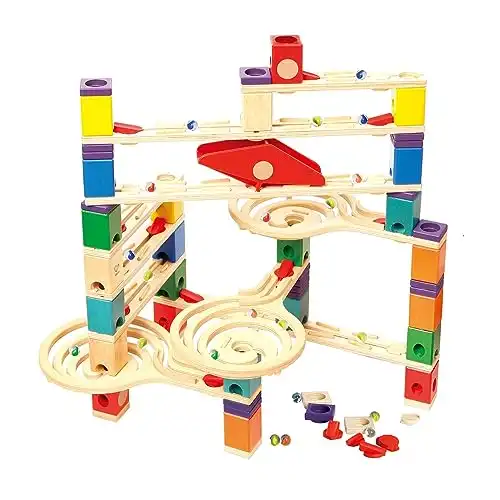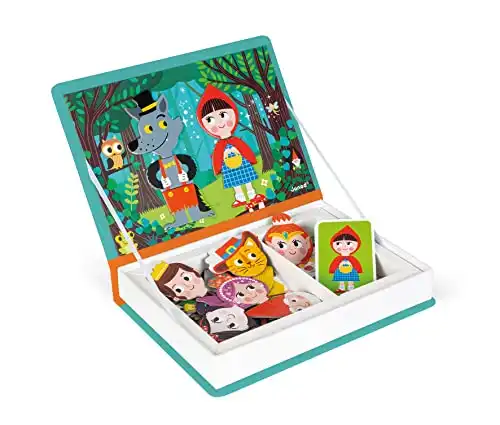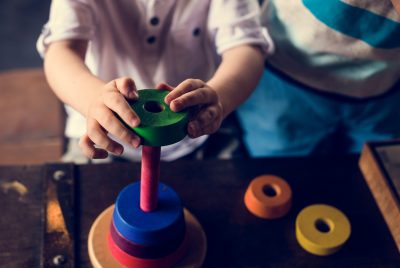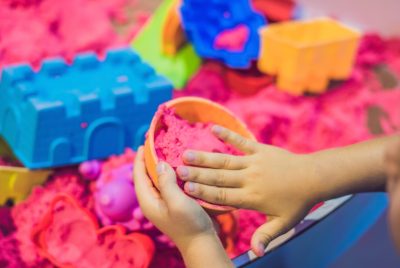Toddler Puzzles: Unlocking Creativity and Boosting Cognitive Skills Through Play
Remember the first time you watched your toddler successfully fit a puzzle piece into its place? That moment of triumph, the gleam in their eyes, isn’t just adorable; it’s a milestone in their cognitive development. Puzzles, with their myriad shapes, colors, and themes, are more than just playtime accessories. They’re your toddler’s first steps into a world where problem-solving meets creativity, where every piece fitting correctly is a victory dance waiting to happen.
In This Article
The Benefits of Toddler Puzzles
Cognitive Development
Let’s talk about the brain boost. Puzzles are like the gym for young minds. They introduce toddlers to the concept of ‘whole and parts’, fostering critical thinking as they figure out where each piece fits. This mental workout enhances problem-solving skills, laying the groundwork for future mathematical and logical reasoning.
Fine Motor Skills
Ever noticed the intense focus on your toddler’s face as they maneuver a puzzle piece into position? That’s them honing their fine motor skills. Each twist, turn, and placement requires coordination and dexterity, essential skills for writing, typing, and other daily activities.
Language Skills
Puzzles also play a surprising role in language development. As we sit with our kids, talking through the puzzle-solving process, we introduce new vocabulary (“edge,” “corner,” “beside”) and encourage verbal expression of thoughts and strategies. It’s a casual, engaging way to boost their communication skills.
Social and Emotional Growth
Puzzle time can be family time, a chance for social interaction and learning about teamwork. It’s also a safe space for toddlers to experience the emotions of frustration and success, teaching them patience, persistence, and the joy of achieving a goal.
Choosing the Right Toddler Puzzles
Age-Appropriate Complexity: Not all puzzles are created equal. The key is to match the puzzle’s complexity with your childs developmental stage. For toddlers, start simple—large pieces and clear images. As they grow, gradually introduce more complex puzzles to challenge them appropriately.
Material and Safety: Safety first, always. Opt for toddler puzzles made from non-toxic, durable materials, designed with your childs safety in mind. Wooden puzzles are a classic choice, offering sturdiness and easy-to-grasp pieces.
Themes and Interests: Keep it fun by choosing puzzles that reflect your toddlers interests. Animals, vehicles, fairy tales? There’s a puzzle for every curiosity, and engaging their imagination makes puzzle-solving all the more enjoyable.
Our Top Picks For Toddler Puzzles
Dive into our curated selection of toddler puzzles, each meticulously selected to not only entertain but also to nurture essential developmental milestones in young minds, encouraging creativity, problem-solving, and fine motor skills with every piece.
Melissa & Doug Farm Wooden Chunky Puzzle
This wooden puzzle for toddlers features thick, chunky pieces that are easy for children to grasp and place. Each piece stands up on its own for pretend play outside of the puzzle board. With bright farm animal pieces, it’s designed to help toddlers develop fine motor skills, hand-eye coordination, and animal recognition.
Personalized Wooden Name Puzzle
This customizable toddler puzzle that can be personalized with a child’s name. The letters are brightly colored and chunky, perfect for little hands to manipulate.
This puzzle not only helps toddlers learn to spell their name but also aids in color recognition and develops fine motor skills.
Hape Country Critters Wooden Activity Play Cube
Hape’s Country Critters Wooden Activity Play Cube for Toddlers is hub of activity that will keep your busy toddlers imagination running wild for hours.
The 5 sides help to develop a number of key skills, including hand-eye coordination, pattern recognition, logic and problem solving, and maths.
Mudpuppy Land & Sea Animals Magnetic Jigsaw Puzzle
With 20 magnetic pieces featuring land and sea animals from around the world and a magnetic board, this set encourages toddlers to create their own wildlife scenes.
It’s not only a puzzle but an imaginative play set as well, promoting animal recognition, spatial reasoning, and storytelling skills.
Skoolzy Peg Board Set
This educational montessori toy features a pegboard and colorful pegs that toddlers can stack and manipulate.
It encourages color sorting, counting, and pattern recognition, acting as a puzzle that fosters early math skills along with fine motor development.
iPlay, iLearn Kids Wooden Floor Puzzle
This fun solar system themed wooden puzzle is sure to develop your toddlers imagination as well as promoting their hand-eye coordination and fine motor skills.
Each of the 48 peices is made of natural wood, is chunky and solid as well as being durable enough to use repeatedly. It comes with a 1:1 scale guidebook, which helps explore the solar system from novice to intermediate levels
Coogam Wooden Blocks Puzzle Brain Teasers
The simple design and bright colors of this toddler puzzle are perfect for sparking any imagination. This popular STEM toy uses common geometric patterns and colors to keep your toddlers brain focused and while aiding creativity and eye-hand coordination.
The Learning Journey: Match It! Head to Tail
This puzzle set is designed for toddlers, helping them to match adorable animal heads to their tails. The puzzles are self-correcting, meaning each piece only fits with its correct match. It’s an excellent way to introduce problem-solving and develop visual recognition in toddlers.
Incorporating Toddler Puzzles into Daily Playtime
Creating a Puzzle Routine: Establishing a puzzle routine is akin to setting a little adventure zone within your home. It’s about dedicating a special time for puzzles, making this an eagerly anticipated activity. This doesn’t mean you need a strict schedule; rather, a flexible, regular slot where puzzles become the heroes of playtime. It fosters a sense of anticipation and establishes puzzles as a key part of learning through play.
Interactive Puzzle Sessions: The beauty of toddler puzzles is that they offer a fantastic opportunity for you to engage directly with your child. Sit down with them, discuss the pictures on the pieces, and gently guide their thought process. This interaction isn’t just about solving the puzzle; it’s a bonding experience, filled with shared achievements and moments of learning.
Encouraging Independence: While it’s important to be involved, it’s equally crucial to step back sometimes and let your toddler tackle the puzzles on their own. This delicate balance encourages independence and builds confidence. Celebrate their successes, but also let them grapple with the challenge, offering support only when truly needed. It teaches them perseverance and self-reliance, invaluable life skills.
Advanced Toddler Puzzles for Skill Enhancement
Puzzle Races
Introducing a dash of friendly competition can spice up your toddler puzzle time. Marble runs can be great for this. You can get your toddler to time how quickly the balls reach the bottom of the maze!
Custom Puzzles
Taking puzzle play a step further, consider creating custom puzzles with your child. Use family photos, drawings, or favorite book characters to make puzzles that are uniquely theirs. This personal touch adds an extra layer of engagement and pride in the puzzle-solving process.
Storytelling with Puzzles
Puzzles can be a gateway to imaginative storytelling. Each puzzle piece can represent a character or part of a story, allowing your child to create tales as they complete the puzzle. This not only enhances their creative thinking but also boosts their narrative skills, making each puzzle-solving session an adventure.
Common Challenges and Solutions
Lack of Interest: It’s natural for toddlers to show fluctuating interest in activities, including puzzles. If your child seems disinterested, don’t force it. Instead, try introducing puzzles with new themes or characters they currently love. Sometimes, simply rotating the puzzles to keep the selection fresh can reignite their enthusiasm.
Frustration and Difficulty: Frustration is a common emotion when puzzles seem too challenging. If you notice your child getting upset, take a step back and assess the puzzle’s difficulty. Offering a simpler puzzle or breaking down the process into more manageable steps can help. Encourage them to express their feelings and remind them that it’s okay to find things difficult. Your support and reassurance can turn a moment of frustration into a learning opportunity.
The Future of Toddler Puzzle Play
Technology and Digital Puzzles: The digital age brings a new dimension to puzzle play. Interactive puzzle apps and online platforms offer diverse and engaging puzzle experiences. While these can be a great supplement to traditional puzzles, balancing screen time is essential. Encourage a mix of digital and physical puzzles to provide a well-rounded developmental experience.
Puzzles and Educational Trends: Toddler Puzzles continue to evolve, reflecting current educational trends towards more holistic, play-based learning. They’re being recognized not just as toys, but as key tools in developing critical thinking, emotional intelligence, and collaborative skills from an early age.
Closing Thoughts From Me
In our journey through the world of toddler puzzles, we’ve explored their many benefits, from cognitive development and fine motor skills to emotional growth and creativity. By choosing the right puzzles, incorporating them into daily routines, and navigating common challenges, we can significantly enrich our toddlers’ developmental journey. Let’s embrace toddler puzzles not just as pieces to be solved but as opportunities to unlock our children’s potential, one piece at a time.
FAQ’s
What age is appropriate for my child to start puzzles? Toddlers can start with simple puzzles as early as 18 months old, gradually moving to more complex puzzles as they grow.
How do I choose puzzles that grow with my child? Look for puzzles that match your child’s developmental stage and interests, starting with large pieces and simple images, then gradually introducing more complex puzzles.
What if my toddler gets frustrated with a puzzle? Offer encouragement, help break down the task, or switch to an easier puzzle to build confidence, ensuring to balance support with fostering independence.
Can puzzles really improve my child’s cognitive skills? Absolutely! Puzzles enhance problem-solving, spatial awareness, and critical thinking, providing a solid foundation for learning.
How can I balance digital and physical puzzles? Set limits on screen time and encourage a mix of digital and physical puzzle play to ensure a well-rounded experience.

